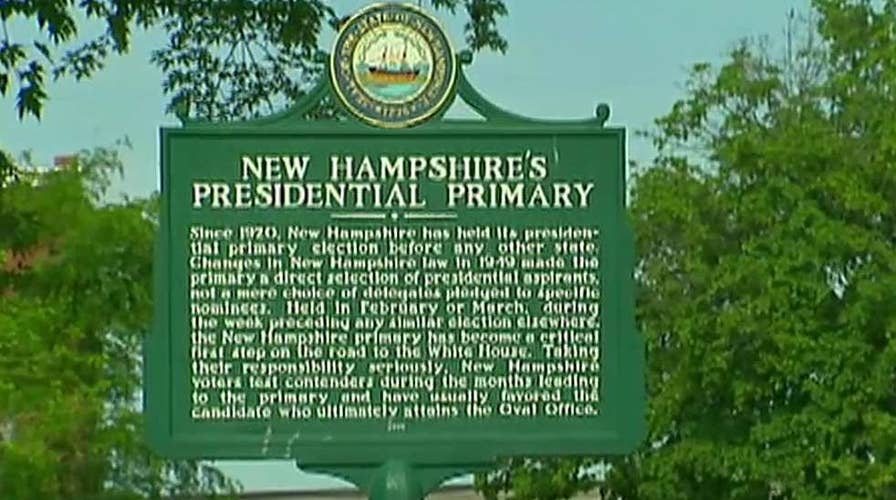How New Hampshire became the nation's first primary state
And its track record for picking presidents
MANCHESTER, N.H. – Tuesday’s vote in New Hampshire marks the 100th anniversary of the first-in-the-nation primary.
“New Hampshire’s … primary is a cherished responsibility for Granite Staters that reflects and informs who we are,” New Hampshire Gov. Maggie Hassan told Fox News.
So why is New Hampshire first, and why is it such a big deal?
According to the governor, New Hampshire was “the first to truly recognize that direct citizen involvement in the nomination process makes for better presidential candidates –and better presidents.”
The New Hampshire primary traditionally has been first for the last century, a position that was sealed into law in 1975 by New Hampshire's secretary of state – holding that New Hampshire’s primary would fall at least seven days before any other.
Here are some other fast facts:
- Since 1976, no Republican candidate has won the party’s nomination without winning Iowa or New Hampshire.
- Since 1952, only three candidates have lost the New Hampshire primary and gone on to be elected president of the United States: Bill Clinton in 1992, George W. Bush in 2000 and Barack Obama in 2008.
- Between 1952 and 1988, no candidate who lost the New Hampshire primary won the White House.
- 44 percent of voters in New Hampshire are unaffiliated, making up the largest voting bloc in the state.
- New Hampshire’s unaffiliated voters can decide on the day of the election which party’s primary to participate in.
- New Hampshire’s secretary of state is predicting a record 550,000 voters will cast ballots in the presidential primary Tuesday.
- Campaigns and outside groups are projected to spend $116 million on ads in New Hampshire.
- From 1916 to 1948, the voters' decision in the New Hampshire primary was solely for the selection of delegates; there was no vote on the presidential contenders themselves. But in 1952, New Hampshire made a change allowing citizens to vote directly for the candidate of their choice, instead of delegates. Other states soon followed.
“The primary originated because we wanted to get rid of what was essentially a caucus,” said Neil Levesque, executive director of the New Hampshire Institute of Politics and chairman of the New Hampshire Primary 100th Anniversary Commission. “We wanted to give power to the people. That is a tradition that still holds true today –the primary is about the people”
Levesque explained one of the ways the state’s primary anniversary commission is celebrating the 100th birthday on Tuesday – they replicated the ballot box from the first primary in 1916, which existed in the New Hampshire State House, to serve as a time capsule. Students, voters, and candidates alike can submit notes and letters to be reviewed another 100 years from now.





